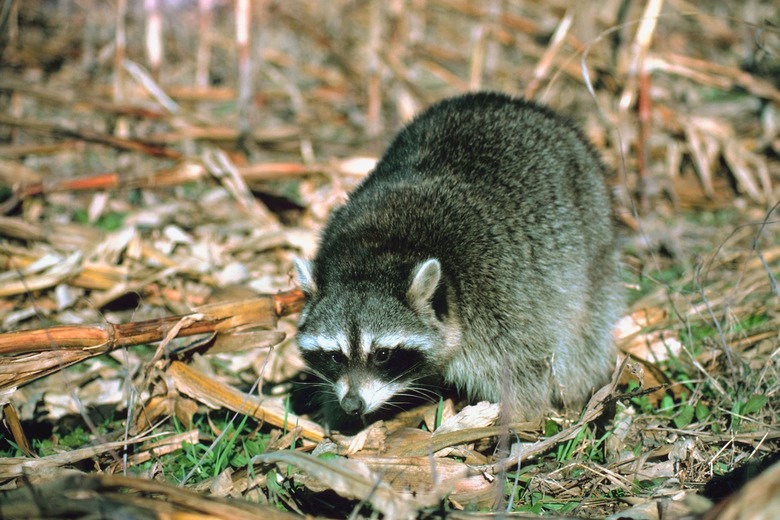Do Raccoons Dig Holes In Yards?
Raccoons are cute animals that look cuddly and can be fun to watch, but the havoc they wreak is not so cute. According to Animal Control Solutions, they weigh up to 35 pounds when they reach adulthood, carry and transmit rabies and can cause over 900 million dollars of damage in the U.S. each year. Though much of the damage occurs when raccoons get in to your home, raccoons digging holes in the yard are also a big problem.
Description of Racoons
Description of Racoons
Though there are probably man animals that dig in your yard, holes dug at night are likely from raccoons or skunks. The holes they dig are usually cone-shaped and three or four inches wide, but larger areas up to ten inches may occur. Holes appear in lawns and gardens when raccoons are foraging for grubs and other insects, and, according to Clemson University, raccoons will peel back newly laid sod while searching for food.
Food Source
Food Source
According to the University of California, raccoons eat plants and animals. They like all kinds of fruits, berries, nuts, acorns, corn and other grains. Animals that they feed on include:
- eggs
- frogs
- fish
- turtles
- crayfish
- snails
- rabbits
- muskrats
- insects
In cities and suburban areas, they dig for grubs and larval insects, eat vegetables and fruit grown in backyards, root through compost piles, steal picnic and pet food left outdoors and turn over garbage cans in search of food.
Widespread Habitat
Widespread Habitat
Though raccoons are associated with rural, wooded areas, they thrive in urban and suburban areas as well. According to the University of California, these night creatures can live unnoticed for quite some time as they make their homes in hollow trees, outbuildings, brush piles, rock crevices, a raccoon burrow, crawl spaces, culverts, storm drains, attics, chimneys or under decks.
Solutions to Raccoon Problems
Solutions to Raccoon Problems
Is there a way to keep raccoons out of the garden? Wegmans Nursery suggests controlling raccoons by ridding your lawn of the insect larvae they dig for. Microscopic roundworms called beneficial nematodes can be introduced to the soil to kill the grubs raccoons feed on. Though they will return looking for the food they formerly found, eventually they will give up. Beneficial nematodes are effective up to two years. Other solutions include screening spaces beneath outbuildings, capping chimneys, removing brush, placing tightly covered trash cans in racks, removing fallen fruit and nuts, installing an electric fence or hiring a professional wildlife control operator.
Cite This Article
MLA
Whitehead, Cathryn. "Do Raccoons Dig Holes In Yards?" sciencing.com, https://www.sciencing.com/raccoons-dig-holes-yards-12124011/. 3 August 2018.
APA
Whitehead, Cathryn. (2018, August 3). Do Raccoons Dig Holes In Yards?. sciencing.com. Retrieved from https://www.sciencing.com/raccoons-dig-holes-yards-12124011/
Chicago
Whitehead, Cathryn. Do Raccoons Dig Holes In Yards? last modified March 24, 2022. https://www.sciencing.com/raccoons-dig-holes-yards-12124011/
